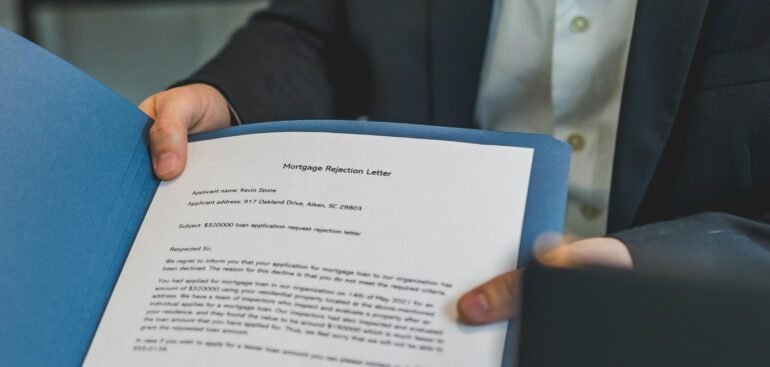Introduction
In today’s increasingly complex financial landscape, the term Forensic Accounting Audit has gained significant prominence, especially in the mortgage sector. This specialized field combines investigative skills with accounting principles to delve deep into financial records, uncovering discrepancies, fraudulent activities, or procedural errors. As the mortgage industry continues to grow, so do the risks of inaccuracies, fraud, and non-compliance. Forensic accounting audits offer a robust solution to these challenges, empowering stakeholders with actionable insights and legal protection.
Mortgage loans are among the most intricate financial products, involving numerous regulations, extensive documentation, and high stakes. A single misstep, whether intentional or accidental, can have far-reaching consequences for borrowers, lenders, and legal professionals alike. This makes forensic audits indispensable for ensuring financial integrity and protecting the interests of all parties involved.
In this comprehensive blog, we’ll explore the core concepts, processes, benefits, and applications of forensic accounting audits in mortgage loans. We’ll also provide expert insights, real-life examples, and actionable solutions to common challenges faced by stakeholders in the mortgage sector.
What is a Forensic Accounting Audit?
A Forensic Accounting Audit is a meticulous process of analyzing financial records to identify inconsistencies, fraud, or procedural missteps. Unlike standard audits, which primarily focus on ensuring compliance, forensic audits are investigative in nature. They aim to uncover hidden issues that could lead to financial or legal liabilities.
In the mortgage sector, these audits scrutinize various aspects, including:
- Loan origination records to verify the accuracy of borrower information and disclosures.
- Payment histories to detect errors in interest rate calculations or overcharges.
- Regulatory compliance to ensure adherence to federal, state, and local laws.
- Evidence of fraudulent activities such as forged documents, falsified appraisals, or undisclosed fees.
Key Features of Forensic Accounting Audits
- Investigative Approach: Unlike traditional audits, forensic audits focus on uncovering the “why” behind financial discrepancies.
- Legal Relevance: The findings from forensic audits often serve as critical evidence in legal proceedings.
- Expert Testimony: Forensic auditors may be called upon to explain their findings in court.
The Growing Importance of Forensic Accounting Audits in Mortgages
- Detecting Mortgage Fraud
Mortgage fraud is a significant concern in the financial world. Common schemes include:
- Falsifying borrower income or employment records.
- Inflating property appraisals to secure larger loans.
- Concealing liabilities to manipulate loan eligibility.
A Forensic Accounting Audit dives deep into the details, identifying anomalies that may indicate fraudulent activity. By uncovering these schemes early, stakeholders can mitigate financial losses and legal risks.
Expert Insight:
“Mortgage fraud undermines the trust and integrity of the financial system. Forensic accounting audits play a pivotal role in restoring confidence by ensuring transparency and accountability.” – Dr. Robert Wilson, Certified Fraud Examiner (CFE)
- Ensuring Compliance with Regulations
Mortgage loans are governed by strict regulations to protect borrowers and maintain market stability. Any deviation from these standards can lead to severe penalties, reputational damage, and potential lawsuits. Forensic accounting audits meticulously verify compliance, ensuring that all transactions meet the necessary legal and regulatory requirements.
- Identifying Payment Errors
Errors in payment calculations or misapplied funds can lead to disputes between borrowers and lenders. Common issues include:
- Overcharges due to incorrect interest rate calculations.
- Late fees applied erroneously.
- Misallocation of payments to the wrong accounts.
By analyzing payment histories, forensic audits identify and resolve these discrepancies, fostering trust and transparency.
Real-Life Scenario:
A borrower suspected overcharges on their mortgage. A forensic audit revealed an error in interest rate adjustments, saving them over $10,000 in excess payments.
- Supporting Legal Disputes
Forensic audits are invaluable in legal disputes involving mortgage loans. Whether it’s a case of fraud, non-compliance, or breach of contract, the detailed findings from forensic audits provide concrete evidence to support claims in court.
Testimonial:
“The forensic accounting audit conducted by Mortgage Audits Online was instrumental in resolving my case. Their thorough investigation and clear documentation provided the evidence we needed to win.” – Emily T., Homeowner
How Does a Forensic Accounting Audit Work?
Step 1: Initial Consultation
The process begins with understanding the client’s concerns. Are they dealing with suspected fraud, compliance issues, or payment disputes? Defining the scope of the audit ensures a targeted approach.
Step 2: Data Collection
Forensic auditors gather all relevant documents, including:
- Loan agreements.
- Borrower financial statements.
- Payment records.
- Regulatory filings.
Step 3: Detailed Analysis
Using advanced tools and techniques, auditors analyze the collected data. This involves:
- Comparing financial records for inconsistencies.
- Using forensic software to detect patterns or anomalies.
- Manually reviewing documents to identify potential red flags.
Step 4: Reporting Findings
A comprehensive report is prepared, detailing:
- All identified discrepancies.
- Evidence supporting the findings.
- Recommendations for corrective actions.
Step 5: Legal Support (if needed)
If the findings are to be used in legal proceedings, forensic auditors may provide expert testimony to explain their analysis and conclusions.
Benefits of Forensic Accounting Audits
For Borrowers
- Protection from fraudulent practices and overcharges.
- Clear understanding of loan terms and compliance.
- Peace of mind knowing their finances are secure.
Testimonial:
“Thanks to the forensic audit, I was able to recover thousands of dollars in overpaid mortgage fees. I can’t thank the team enough for their diligence.” – Jason L., Homeowner
For Lenders
- Assurance of regulatory compliance.
- Identification of fraudulent applications.
- Strengthened reputation for integrity and transparency.
For Legal Professionals
- Reliable evidence for litigation.
- Expert analysis to support legal arguments.
- Enhanced credibility in court.
Advanced Tools and Techniques in Forensic Auditing
Data Analytics
Forensic auditors use advanced data analysis tools to identify patterns, anomalies, and inconsistencies in financial records.
Artificial Intelligence (AI)
AI-powered tools enhance the efficiency and accuracy of forensic audits by automating complex analytical tasks.
Blockchain Technology
Blockchain is increasingly being used to verify the authenticity and integrity of financial transactions.
Expert Insight:
“The integration of AI and blockchain has revolutionized forensic accounting, enabling auditors to uncover issues faster and with greater precision.” – David Martinez, CPA
Challenges in Forensic Accounting Audits
While highly effective, forensic audits face several challenges:
- Incomplete or inaccurate documentation.
- High costs associated with advanced audit tools.
- Resistance from parties reluctant to disclose financial records.
Despite these hurdles, experienced forensic auditors employ creative solutions and robust methodologies to deliver reliable results.
Why Choose Mortgage Audits Online?
At Mortgage Audits Online, we pride ourselves on delivering unparalleled forensic accounting audit services tailored to the mortgage sector. Our team of certified professionals combines expertise with cutting-edge technology to provide comprehensive solutions for borrowers, lenders, and legal professionals.
Our Key Services:
- Detailed analysis of mortgage loans.
- Identification of discrepancies and overcharges.
- Regulatory compliance audits.
- Expert testimony for legal disputes.
Testimonial:
“Mortgage Audits Online provided a thorough audit that uncovered errors in my loan documents. Their professionalism and expertise were evident every step of the way.” – Sarah W., Borrower
Call to Action
If you suspect discrepancies in your mortgage loan or simply want the confidence that comes with a detailed review, don’t wait. Act now to protect your financial interests.
Contact us today at (877)-399-2995 or visit Mortgage Audits Online to schedule your forensic accounting audit.
Ensure your mortgage is free from hidden errors and fraud. Let us help you take control of your financial future!







